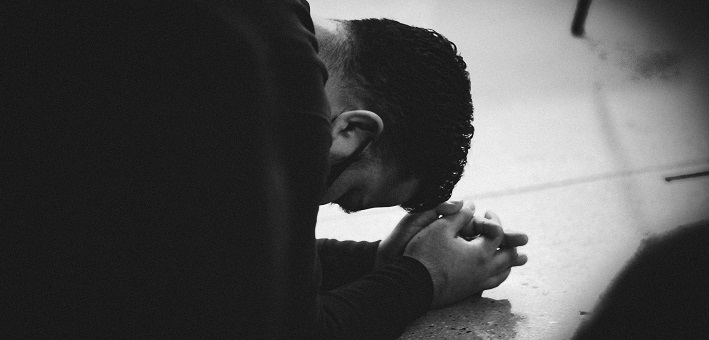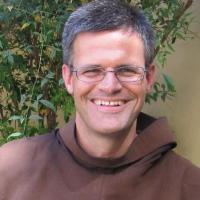Commentary on Joel 2:23-32
No scholarly consensus surrounds the dating of Joel. We must be content to say that Joel, like Obadiah and Jonah, seems to be a book of unknown origins. While the book is of unknown origins, its content falls into the familiar body of oracles of desolation and consolation. Most prophetic literature consists of oracles of desolation, but we often turn to the prophets for oracles of consolation. This passage delivers a reading full of hope after many verses stating the difficult straits in which Israel found itself.
Although Joel is of unknown origins, the language at the center of this passage taps into a common tradition of Isaiah and Deuteronomy: “there is no other.” This is the language of an emerging monotheism. Joel describes many reversals in the passages preceding our passage, which former generations may have attributed to the powers of other gods. Even in the Ten Commandments we are warned not to worship other gods; we are not told that they do not exist. Joel describes an emerging understanding within Israel that there is nothing else worth contemplating in the heavens other than Israel’s God. If we agree that this phrase, “there is no other” stands at the literal and metaphorical center of our passage, it will help order the reality of this passage and our own reality today.
Our passage begins with a vision of abundance. This vision contrasts starkly with the many verses before it that describe Israel’s deprivation and suffering. As is so often the case, the prophet feels called to portray the status quo in which Israel lives. Israel has turned away from God, and life without God leads to scarcity and a lack of meaning. Our passage offers a vision of life with God.
This vision contrasts sharply with the current reality as it focuses on the positive emotions of joy and gladness. This is God’s destiny for humanity: joy and gladness. Rather than a state of constant worry and trepidation, we see anxiety quickly relieved by the early rains. Those of us who live in Mediterranean climates know how much anxiety builds during the rainy season when the rains do not come. The Southwest of the United States has been living through unprecedented drought. Each winter we wonder whether the drought will break, early rains lead to an early relief from anxiety. We see in this passage how the prophet Joel describes a vision of abundance with both early and late rain, a future full of hope.
I believe this passage asks us to extend the metaphor of rain into our own lives. Israel contends with great adversaries during the time of the prophets, Egypt to the west, and whatever empire (Assyrian, Babylonian, or Persian) that was inhabiting Mesopotamia to the East. These adversaries are alluded to in verse 25. Contending with these adversaries was tough, but it was a part of life just like contending with droughts is tough, but it too is a part of life. I think the Hebrew Bible asks us to extend that metaphor into our own lives. We will find times of spiritual dryness and spiritual abundance.
False Christianity in the guise of the Gospel of Prosperity denies this reality. It only promises moving from strength to strength. Great empires like the Babylonians offer this same promise: we will only move from strength to strength. The prophet Joel undermines this lie. There will be good times and bad times. Just like the spring follows the winter or the rainy season follows the dry season, we will have ups and downs in our lives. We will be tempted to follow the Gospel of Prosperity that promises only miracles and sunshine. We will be tempted to put the empire before God and place all our trust in it rather than the God of Joel who uses other empires to chastise Israel.
This is why “there is no other” is at the center of our passage. Joel does not describe a God who removes all suffering from our daily life. While we should never seek out suffering, we will be tempted to turn to the empire or the Gospel of Prosperity if we cannot accept suffering in life. Just as spring follows winter or the rainy season follows the dry season, we must be prepared for suffering and spiritual dryness in our life. The quicker we run away from this, the faster it will find us or the more we will be susceptible to the idols of prosperity and empire. There is no other.
What Joel does describe is a God for all people, especially the marginalized. If anyone would seem to be punished by God, it would be a slave. Joel does not see it that way. God will pour out the Spirit on slaves just as God pours out the Spirit on everyone else (2:29). The Gospel of Prosperity and the empires of this world deny this reality. For them, God is only found among the rich, healthy, and prosperous. This is a different God than Joel describes and a different gospel than Jesus preaches. Joel’s words come resounding back to us: there is no other. When we substitute prosperity and empire for the God of Israel, we are ultimately worshiping idols.
Joel is on the path to the radical monotheism of Jesus. He is preaching to a society that is not quite there yet. Isaiah has preached this before him and Deuteronomy will get there. He is preaching to us as well as we can see all the things that are competing with God in our society, whether it is consumerism, nationalism, or narcissism. Joel makes a simple promise to us. If we turn away from the idols, no matter what they may be for us, we will be saved. Rather than an abundance of money or power, we are promised an abundance of meaning and love.


October 23, 2022